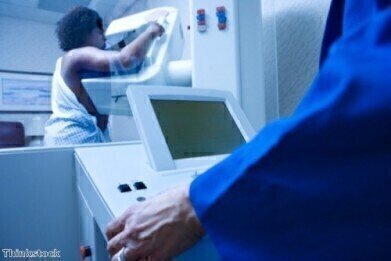News & Views
University Collaboration Seeks Pharma Industry Partners
Apr 05 2017
Research teams based at the Universities of Dundee and Edinburgh are looking to partner with the pharmaceutical industry to better understand the biological processes that could allow the development of new drugs to support tissue regeneration or repair.
The National Phenotypic Screening Centre (NPSC) at the University of Dundee and the Medical Research Council (MRC) Centre for Regenerative Medicine (CRM) at the University of Edinburgh have signed a Memorandum of Understanding that commits them to work more closely together as they strive to translate novel biological discoveries into new stem cell therapies.
Regenerative medicine therapies to treat a range of debilitating diseases (including blindness, liver disease, Parkinson’s disease, arthritis and many others) are actively being developed around the world. Many of them are based on one of two approaches: implantation of stem-cell-derived cells or the use of drugs to selectively activate and mobilise the body’s own stem cells in order to replace damaged or diseased tissues. Understanding the stem cells in tissues and their supporting environment (the stem cell `niche’) is critical to both approaches.
The UK Regenerative Medicine Platform-funded “Engineering and exploiting the stem cell niche” Hub, led by the MRC Centre for Regenerative Medicine (CRM) at the University of Edinburgh, is dedicated to further understanding of the biology of stem cell niches and to exploiting this knowledge therapeutically to improve organ regeneration through endogenous repair and cell transplantation
Finding new drugs which can activate endogenous regenerative pathways requires the development of cell-based assays that are able to reproduce the complex behaviour (the `phenotype’) of the cells and tissues in patients. The National Phenotypic Screening Centre (NPSC) at the University of Dundee specialises in developing such complex assays so they can be systematically screened using large libraries of drug-like molecules to uncover agents that can alter cell and tissue behaviour.
Close collaboration between the two centres, which together represent government investment amounting to around £35million, will allow novel biological discoveries from CRM to benefit from the expertise and industrial drug screening infrastructure provided by the NPSC, leading to the start-points for new therapies. An in-depth understanding of cell and tissue function will facilitate the search to find molecules that improve key tissue regeneration processes that could eventually be used as drugs for regenerative repair.
Further details at www.crm.ed.ac.uk
Digital Edition
Lab Asia 31.2 April 2024
April 2024
In This Edition Chromatography Articles - Approaches to troubleshooting an SPE method for the analysis of oligonucleotides (pt i) - High-precision liquid flow processes demand full fluidic c...
View all digital editions
Events
Apr 22 2024 Marrakech, Morroco
Making Pharmaceuticals Exhibition & Conference
Apr 23 2024 Coventry, UK
Apr 23 2024 Kintex, South Korea
Apr 23 2024 Seoul, South Korea
Apr 24 2024 Jakarta, Indonesia




.jpg)













